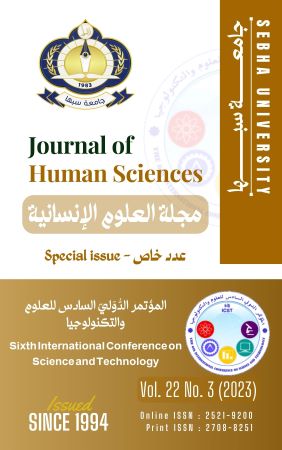The significance of the active participle in the noble hadith
Main Article Content
Abstract
The sources of the Arabic language were diverse, and among them was the Noble Hadith, which comes in second place after the Holy Qur’an. It received a great degree of interest among linguists and jurists among scholars, no less than other sources. Of these jurists, the most notable among these jurists are the Maliki scholars who have achieved great success in Their evidence is based on the hadiths of the Master of Creation - may God bless him and grant him peace - in various jurisprudential issues. Among these scholars is Abu Abbas Shihab al-Din Ahmad bin Idris al-Sanhjani al-Qarafi al-Maliki. (d. 684 AH) who authored a group of compilations, including the book Al-Thakhira, which contained a large number of honorable hadiths that were disseminated in the various chapters of jurisprudence, and a phenomenon of morphology that emerged in these hadiths caught my attention, which is the name of the actor, so what does this term mean? How is it formulated? And what is its significance in the words of the Messenger – may God’s prayers and peace be upon him – and the reason for choosing this subject is due to the fact that the subject’s noun is one of the most important derivatives in the morphological and semantic lesson. Due to its frequent rotation in speech, and its resemblance to the present tense verb, this research will answer several questions as well, including: What is the significance of the temporal subject noun in the noble hadith of the Prophet? What is its significance in terms of abundance and exaggeration?
Downloads
Article Details
Plagiarism policy
Sebha University Journal respects intellectual property and aims to protect the original work of authors applying for publication. In general, the laws of the magazine are inconsistent with scientific articles that contain stolen materials and are not bound by the standards of quality, research and innovation. Applicants for publication to the journal must adhere to ethical standards and refrain from plagiarism in any way. In the event that any plagiarism or scientific theft of an article submitted for publication is found, the journal will contact the author to provide their interpretation within two weeks of its date, after which it will be referred to the relevant committees formed for this purpose to take strict measures. about that. In general, the journal’s license allows the citation of the content published on its website and the download of all files.




